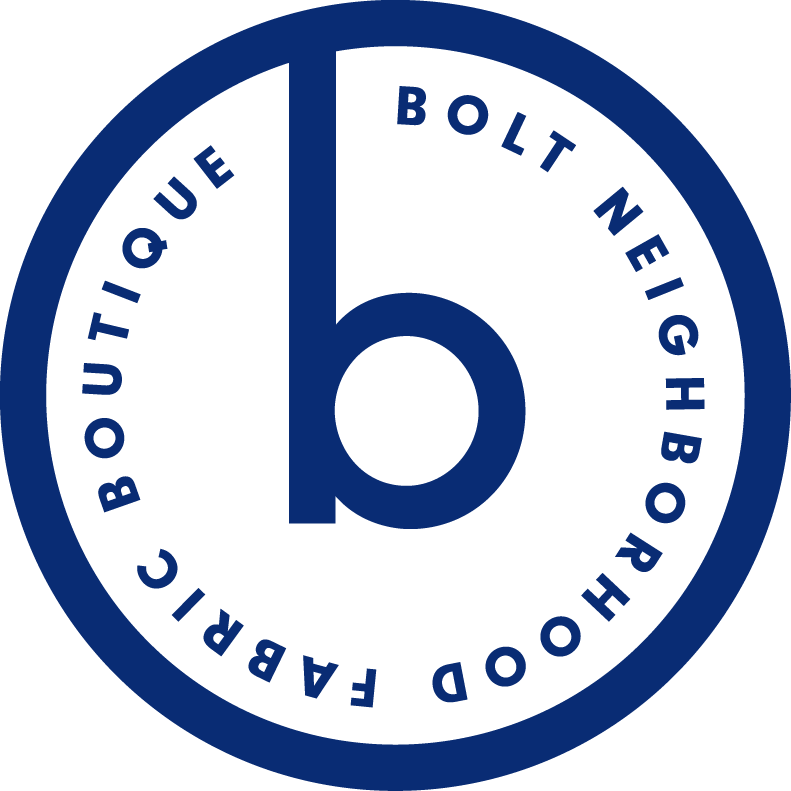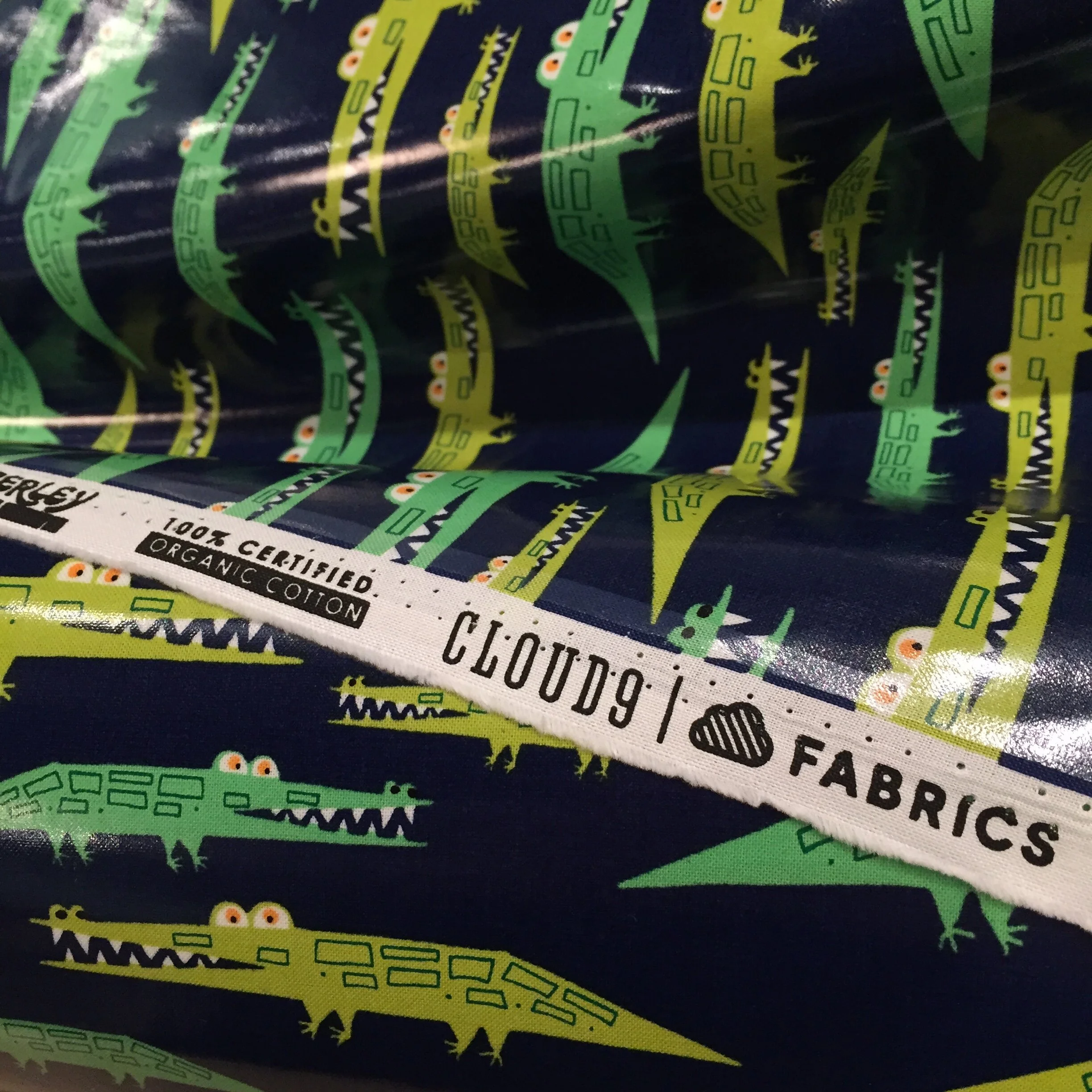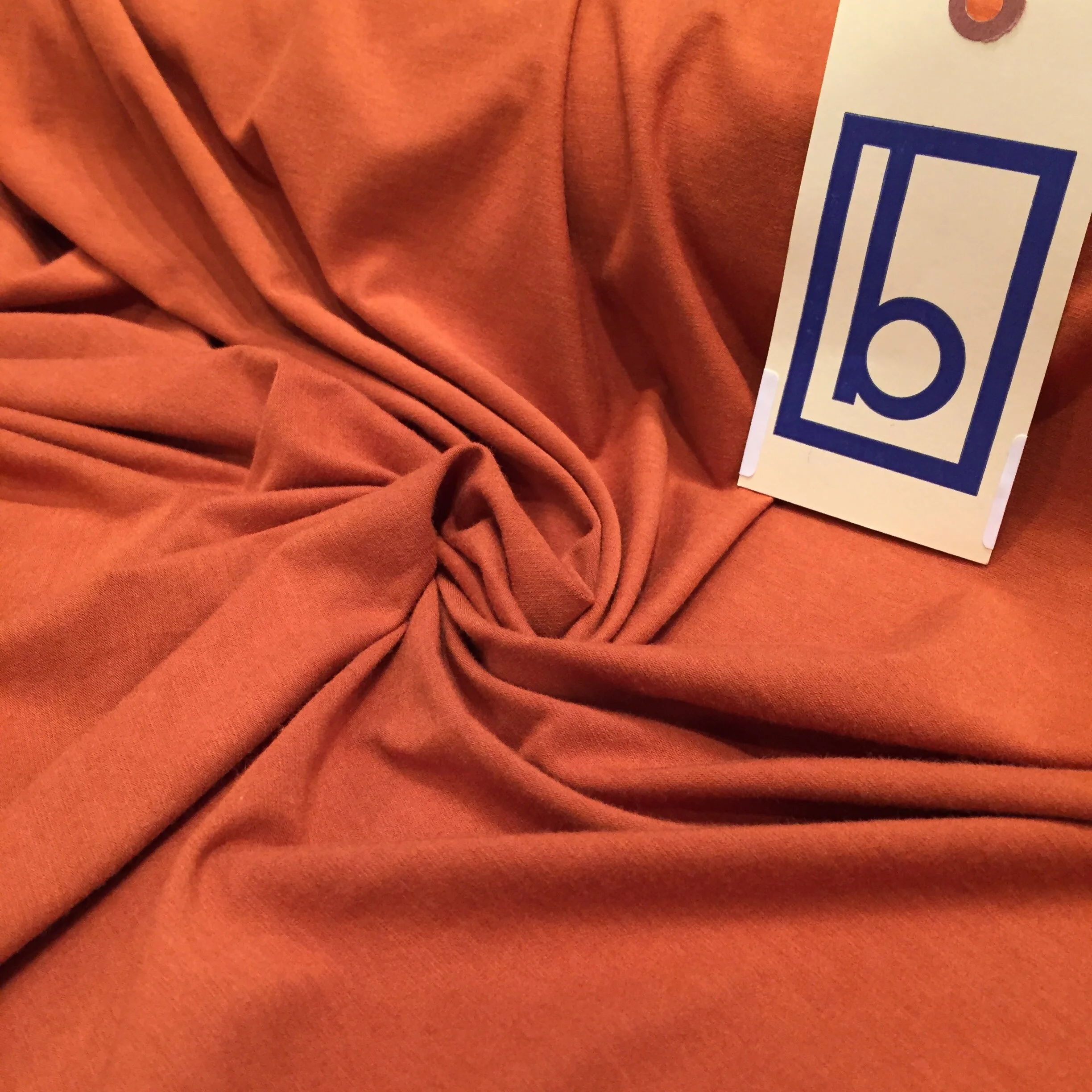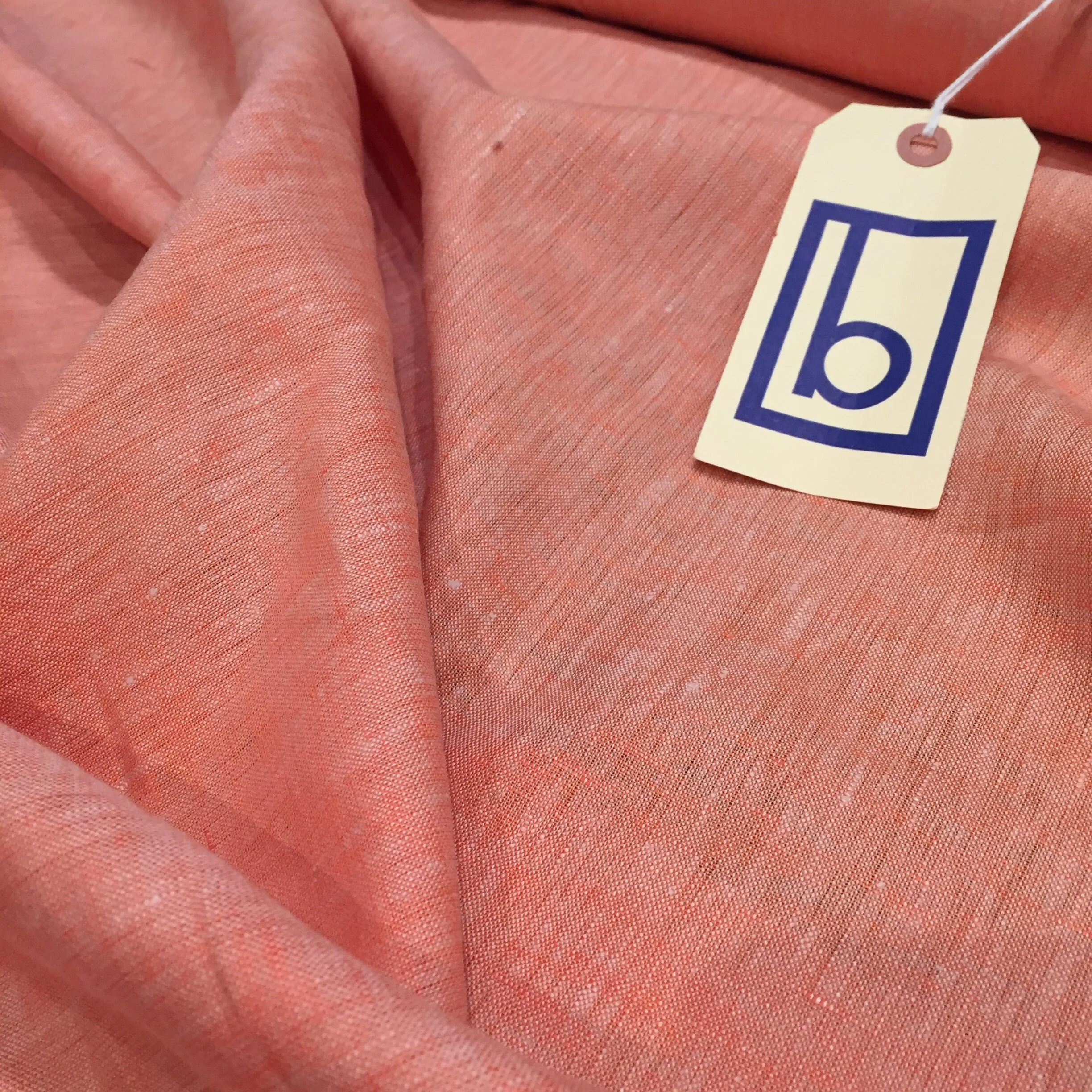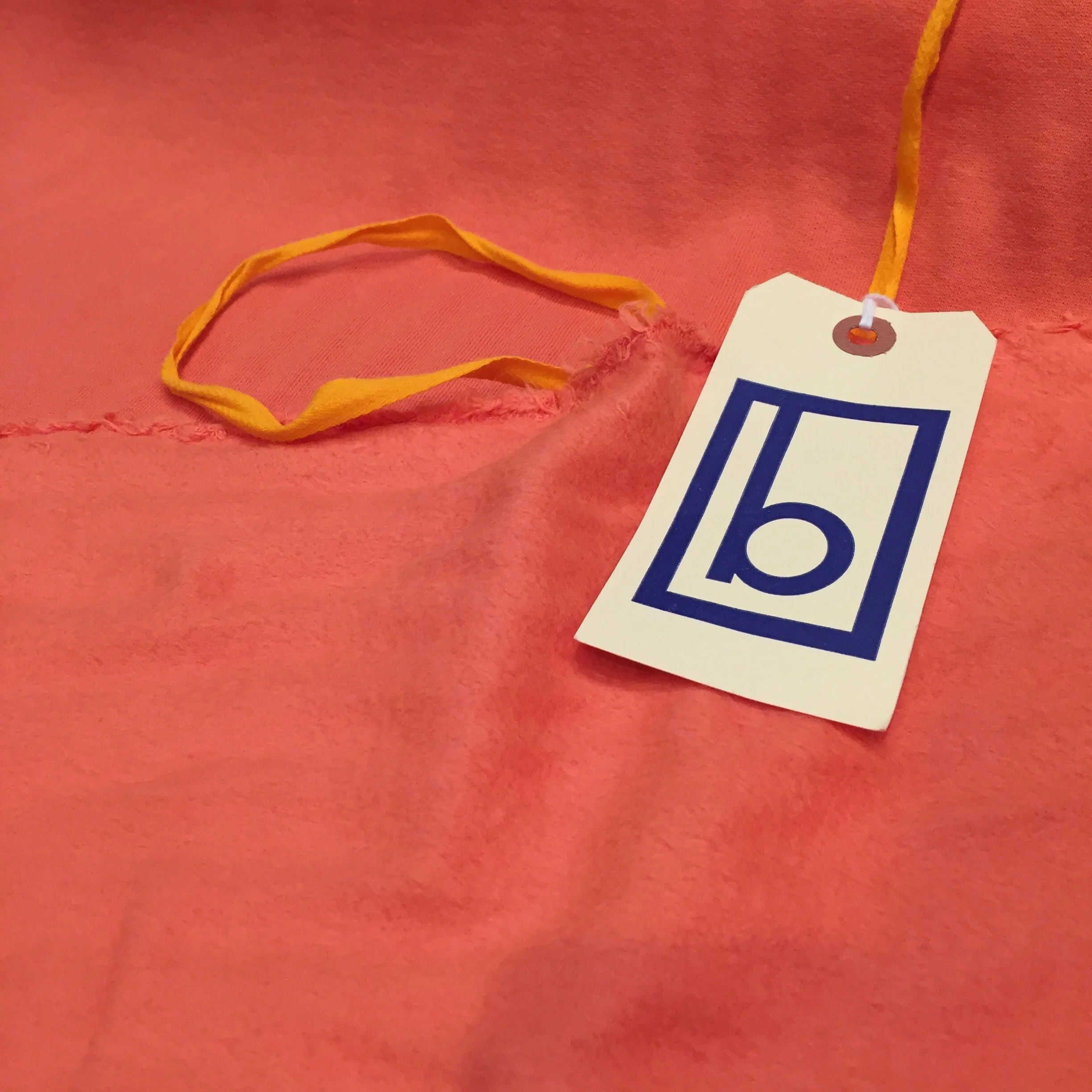Sustainable Fashion Explained, PART 3
GOTS ORGANIC
By Julie
Today we’ll be venturing into the world of GOTS Organic Certification!
95% GOTS Certified Organic Cotton, 5% Spandex Knits
What does GOTS Organic certification mean?
Most organic textiles are certified by the Global Organic Textile Standard (GOTS), which partners with organizations including Oregon Tilth and the Organic Trade Association for certification. GOTS certification includes both environmental and social criteria, and a general standard of at least 70% organic fibers (explained below).
They test for their own toxicological criteria in textiles and dyestuffs, which includes similar classes of harmful compounds to the OEKO-TEX Standard 100 list:
Formaldehyde
Endocrine disruptors
Complexing agents and surfactants
Heavy metals
Phthalates
Other potentially biologically or ecologically harmful compounds
In general, they follow the Global Harmonized System (GHS) developed by the United Nations that delineates compounds known to harm humans and the environment. They also require every GOTS-certified wet-processing unit to use a wastewater treatment plant, as well as track and report their energy and water consumption per kg of textile output.
How are the producers certified GOTS Organic?
They submit their products for extensive testing by one of the Organic certifying bodies under the GOTS umbrella. A GOTS expert confirms with that independent certifying body that the producer meets the GOTS criteria and performs an in-person inspection.
All processors and manufacturers are inspected annually to renew their GOTS certification.
Their published 2014 standard includes a disclaimer acknowledging that modern textile production is “nearly impossible… without the use of chemical inputs” so they advocate for the use of low-impact and low-residue compounds. The GOTS certification can be labeled on a fabric logo as “Organic” (or “Organic - In Conversion”, if applicable) ONLY if it is made up of at least 95% organic fibers (excluding accessories). If the fabric is made up of 70-95% organic fibers, it is labeled as “Made with (%) Organic Materials”.
Their social standards include regular and voluntary employment, freedom of association, safe working conditions, the prohibition of child labor, and guarantee of a living wage (as defined by national legal or industry standards, whichever is higher).
What’s included in the testing for GOTS Organic?
As best as we can discern, only the fibers themselves are tested against the GOTS criteria. This means that garment accessories (zippers, buttons, etc.) are excluded, while linings and applications (including sizing) are tested.
How do I know if a fabric is GOTS Organic certified?
The GOTS label looks like this. Textiles may also just contain text including the phrase “100% GOTS Certified Organic Cotton.” Other organic labels - like the USDA Organic logo - mean different things and follow different standards of certification.
100% GOTS Organic Certified Label - Monaluna Quilting Cotton
100% GOTS Organic Certified Selvedge Label - Cloud 9 Coated Cotton
Check out this infographic for more info about GOTS certification, or visit their website to read more in depth about the standards.
So how are GOTS and OEKO-TEX Different?
It’s our view that OEKO-TEX Standard 100 and GOTS certifications are more alike than they are different. Both extensively test textiles at all stages of production for the use and residue of compounds either proven or suspected to be harmful to humans and/or the environment. Both sets of standards are rigorous, and producers and manufacturers are audited every year to ensure their adherence to the certification’s criteria.
GOTS certification includes meeting ethically based social requirements; OEKO-TEX does not. Despite the social criteria, however, GOTS certification is not Fair Trade certification, and the industry or national standard of pay is unethically low in many countries where textiles are produced. OEKO-TEX tests all parts of a fabric, notion, or garment, including zippers and buttons; GOTS does not. The OEKO-TEX Standard 100 logo ensures that all components of a garment or textile meet the strict Standard 100 criteria; the GOTS logo means a garment or textile is 70-100% organic, a percentage variability which might unsettle some consumers.
What GOTS Organic certified products does Bolt carry?
We carry a selection of fabrics certified by GOTS. Sustainable products (including GOTS Organic certified fabrics) are marked in the shop with orange stickers if they are on bolts and orange twill tape if they are on tubes. Check out the links to the online store for more information about these fabrics!
Birch linens, interlock knits, and fleeces
Monaluna quilting cottons
Carr duck canvas
Cloud 9 coated and quilting cottons
NOTE: Cloud 9 rayons are not GOTS certified. Even organically grown bamboo is too heavily processed in the chemical treatment of the pulp into rayon or viscose to be considered organic by any certifying body.
Pickering soy/organic cotton jerseys
The cotton is GOTS Organic and is grown using integrated soil and pest management techniques.
The soy is made from the waste product generated by soybean oil.
Pickering hemp/organic cotton blends, including jerseys, lightweight tickings, midweight wovens, and lightweight duck canvases.
The cotton is GOTS Organic and is grown using integrated soil and pest management techniques.
Have any questions about OEKO-TEX Standard 100 or GOTS Organic Certified products we carry? Visit the shop in Portland or the online store!
95% GOTS Certified Organic Cotton, 5% Spandex Jersey
100% GOTS Certified Organic Linen
Carr 100% Organic Duck Canvas
100% GOTS Certified Organic Cotton Fleece
Stay tuned for the next installment of Sustainable Fashion Explained - All About Bamboo!
